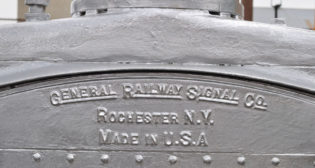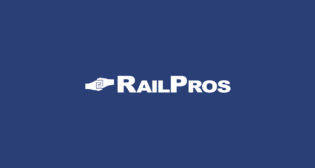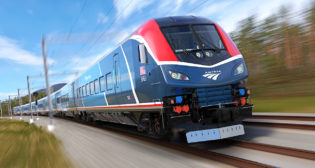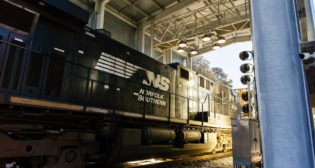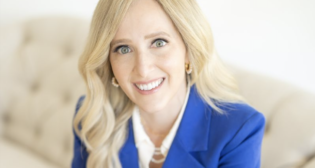
NS: ‘Safety First’ Gets ‘Nuclear Power’
Written by William C. Vantuono, Editor-in-ChiefNorfolk Southern has retained Atkins Nuclear Secured (ANS) to conduct a multi-year independent review of the railroad’s “safety-first culture.” NS and ANS “will build upon the work and safety initiatives under way at the company, including the recently announced six-point safety and craft workforce engagement plans,” NS said.
With access across the company, ANS will report directly to Norfolk Southern President and CEO Alan H. Shaw, and evaluate the company’s safety culture, safety related training programs, employee engagement, oversight and monitoring, and communications protocols and practices. Opportunities to improve safety “will be implemented in phases, while simultaneously building a roadmap for long-term success,” NS said.
ANS, a member of the SNC-Lavalin Group, offers “decades of experience” and “is one of the world’s most respected firms, composed of safety, security, and engineering experts,” NS said. “ANS and its predecessor companies have addressed some of the U.S. Department of Energy’s and National Nuclear Security Administration’s toughest infrastructure and safety challenges.”
The ANS team, comprised of professionals with extensive experience in the Naval Nuclear Propulsion Program, will be led by Admiral Kirk Donald, U.S. Navy (Ret.), the program’s former Director. In that role, Admiral Donald was responsible for the safe and effective operation of all U.S. nuclear-powered warships.
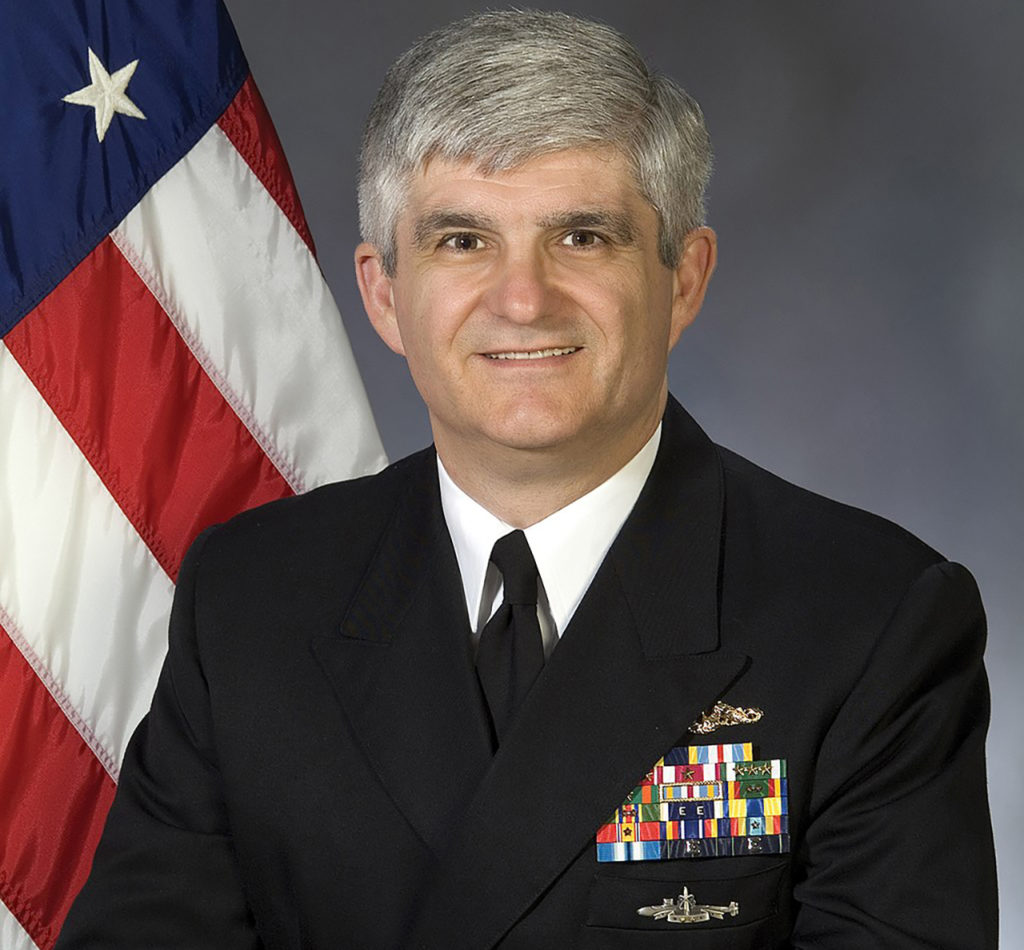
“The entire Norfolk Southern team is deeply committed to being an even safer railroad,” said Shaw. “The nuclear industry is the gold standard for industrial safety, and we intend to set the gold standard for the railroad industry. Through our discussions with ANS, it became clear that we share a focus on safety and operational excellence. We are confident that ANS is the right partner to help identify opportunities to help strengthen our safety practices.”
“We look forward to learning from ANS’s work to drive enhanced safety outcomes, all while furthering our safety culture,” said Amy Miles, Chair of the Norfolk Southern Board of Directors. “The Board is fully committed to enhancing risk oversight and governance through this independent assessment.”
“Norfolk Southern takes a continuous improvement approach to its safety culture, and we are energized to work alongside them to identify and implement additional opportunities that will make them an even safer and better railroad,” said Admiral Donald.
Q&A With Alan Shaw
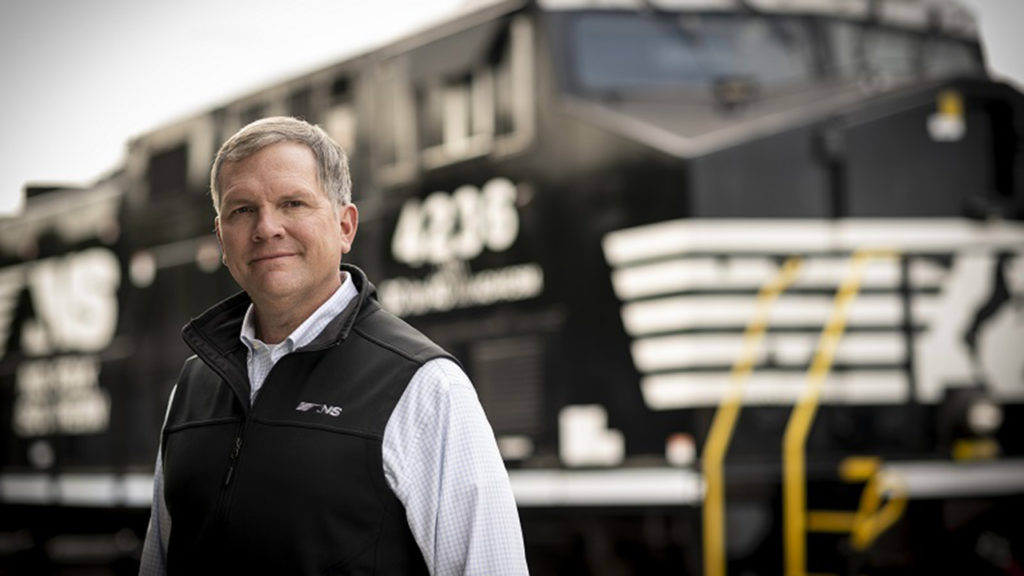
Railway Age Editor-in-Chief William C. Vantuono spoke with Alan Shaw on the ANS partnership and its genesis, which actually goes back to his experience as an aerospace engineer working with the U.S. Navy’s nuclear program prior to joining NS.
RA: How did this partnership come about?
SHAW: What really drew me to this is that my first job out of college was at Newport News Shipbuilding as an aerospace engineer. I worked in the nuclear department when we were installing nuclear reactors on the USS George Washington (CVN 76), and did some work on submarine refueling as well. I got full exposure. The safety culture of Admiral Rickover’s Nuclear Navy stuck with me. I worked there for about two years and saved up enough money to go back to school and get my MBA. But it stuck with me—the culture, the training, the oversight, the management, and the engagement between the Navy and the supervisors at the shipyard. I was working with about 15 craft employees installing nuclear fuel cells on the carrier. I went through a lot of training.
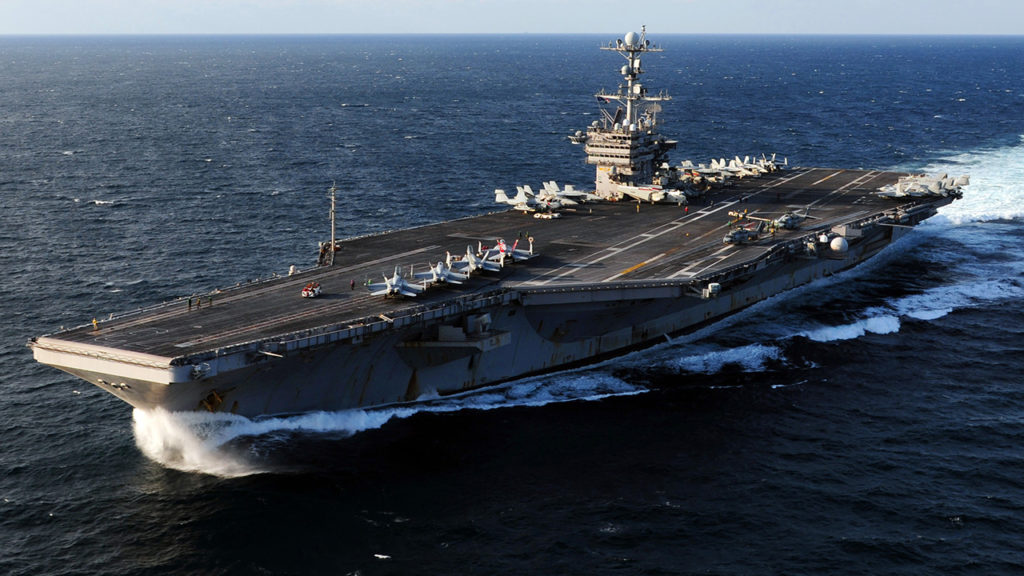
RA: So your experience there had a lot to do with this program?
SHAW: I wanted to look outside the industry. There are a lot of great companies that do a lot of great safety culture work within the rail industry. Certainly we’ve benefited from that. But I wanted to take a quantum step. I wanted to do something different, something bold. I wanted to do something that was personal to me, because safety is personal to me. And I wanted to send a really clear signal to my team, the entire NS organization, how important this is and how I’m willing to invest in it. And so I was by good fortune I was put in touch with Donald. He pulled together this team. I looked at their bios and I thought, “I’m going to have three former Admirals working on this.” You combine them, and you have people with 140 years of Navy nuclear experience who are going to be helping us. It’s so important to me. They’re going to report directly to me and they’re going to be here two to three years.
A big component of this is engagement with our craft colleagues. It’s not a top-down approach. It’s a peer-to-peer holistic approach, so much so that during the selection process I included our Vice President of Labor Relations and our Vice President of Human Resources, along with our OPS team and our new VP of Safety. Because this is a holistic approach, it includes all 20,000 people at Norfolk Southern, not just operations supervisors.
RA: You felt this was a natural fit for Norfolk Southern, based on your experience?
SHAW: Even though that was a long time ago. my experience with the Navy stuck with me. Admiral Rickover had zero tolerance for a reactor release, because he knew that as soon as one of those happened, it would be real problematic for the ongoing Nuclear Navy. They just celebrated 75 years, and there has never been a reactor release that has damaged the environment or hurt any personnel.
And then I think about Norfolk Southern’s culture. We’re very fortunate to hire many veterans. We engaged McChrystal Group LLC last fall to help us with our cultural enhancements. [Founder] Stanley McChrystal is a former Army General (Joint Special Operations Command). I stay in close touch with him. He wrote a book, Team of Teams: New Rules of Engagement for a Complex World, which I read over the pandemic, and it really struck me about how you pull together different groups and get them working together to build trust and cohesion and a common consciousness. I talked to General McChrystal about this as well and I asked him, once we bring on Admiral Kirk’s team, could we combine your team and his to really help us implement this? So it fits Norfolk Southern’s culture and where I want to go. I’ve said I want to be an industry leader. The Nuclear Navy program is the gold standard in safety, and that’s where I fully intend to take Norfolk Southern.
RA: This is a two- to three-year program?
SHAW: Yes. They’re going to be part of us for a long time.
RA: Once this program has been completed, what do you hope will be the result?
SHAW: They’re going to give us a lot of help on training, on oversight, on management, on risk tolerance. It fits within your ERM (enterprise risk management) process. So again, it’s holistic, it’s peer-to-peer. It will permeate throughout the whole organization.
RA: Well, you’re certainly doing a lot to engage with your employees—the letter that was sent to the entire organization, and the fact that all the unions signed on. That looks to me like a positive step. A lot of positive things have been happening, with paid sick leave and other measures. And despite all the tension last year with the the labor negotiations, things seem to be at least in my mind settling down. It looks like you have a lot of optimism.
SHAW: I’m inherently an optimistic person. It’s my job to look, scan the horizon and look for risks and mitigate those. Since my first day as CEO, I’ve been out in the field. It’s really important for me to be out in the field and engaged with our craft colleagues. My vision for Norfolk Southern, is a customer-centric, operations-driven service organization. We understand operations-driven means engaging and supporting in a standard of care for our operations, which includes my own personal commitment. So generally, most of my time is either spent engaging with customers or engaging with operations. When it’s operations, I’m out in the field, visiting with our supervisors at the local level, walking into the crew rooms, walking the ballast line, walking into the shops and talking to the engineering gangs. Frankly, that’s where I get a lot of my energy, and I want them to know how much I appreciate and respect what they do for Norfolk Southern, our customers and the U.S. economy.
I’ll give you an example. I was up in Conneaut (Ohio) and I was talking to some of the local union leaders and the local supervisor, and they were getting ready to celebrate 10 consecutive years of injury-free work. They wanted to have a celebration and wanted to know if I would come back. I said “absolutely.” A couple months later I went back and I brought one of our board members with me. We cooked steaks for our union colleagues that day. It was fantastic. My presence and the presence of the board member were meant to reinforce to our union colleagues how important it is that we recognize and show appreciation for their hard work, their contributions to Norfolk Southern and their focus on safety.
As I started putting all this together with respect to the safety consultant, it was important to me that I engaged with our union employees. I told them about it first. Over the past two weeks, I’ve reached out and contacted the heads of all our labor unions. I went to Cleveland twice and met with the heads of our two largest labor unions. I told them about my selection of Atkins Nuclear Solutions and the goal of a peer-to-peer holistic engagement, and asked for their help and if they would, as a show of solidarity, sign that open letter with me to our employees.
Reinforcing a common goal around safety, recall that unions were set up to advance safety. It wasn’t all about wages and benefits. There’s a natural alignment between me and our union employees, and I continue to be really focused on employee engagement. Improving the quality of life for our union colleagues, take a look at the deal we did with SMART-TD. It goes well beyond paid sick days. There are a lot of quality-of-life measures that are important to our employees and that’s important to me.
RA: What are your expectations, longer term?
SHAW: We’re going to come out of this a stronger company. There are a lot of people who are really pleased with what we’re doing and the direction in which we’re going. And I have a responsibility to them to see this thing through. We’ve got a great team.
